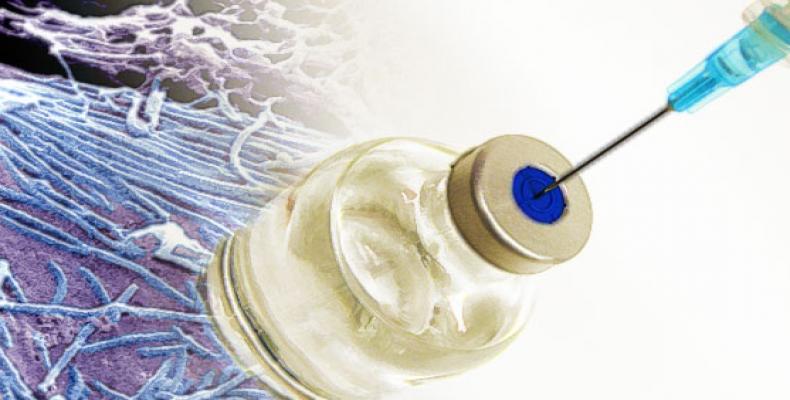Geneva, October 25 (RHC-BBC) -- Two Ebola vaccine candidates might be ready for testing in hard-hit West African countries in December, a month earlier than previously predicted. And one vaccine manufacturer has said it may have millions of doses available by April, should studies prove that it's safe and effective, a much more optimistic scenario than outlined until now.
As more and more resources are mobilized for development of Ebola vaccines, the time-line is being compressed, said a World Health Organization (WHO) official at a press conference on Friday.
Two new Ebola cases, one in Mali and one in New York City, have added to the sense of urgency in containing the spread of the deadly virus. But the best-case scenarios being discussed may be far too optimistic given the rapid spread of the Ebola virus, particularly in Liberia, Sierra Leone, and Guinea.
The World Health Organization has announced that millions of doses of experimental Ebola vaccines will be produced by the end of 2015, according to a BBC news report Friday.
The WHO said "several hundred thousand" would be produced in the first half of the year. And vaccines could be offered to health workers on the front-line in West Africa as soon as December 2014.
However, the WHO cautioned that vaccines would not be ultimate solution for ending the outbreak. There is no proven cure or vaccine for Ebola so far.
In response to the largest epidemic of the disease in history, the WHO is accelerating the process of vaccine development. It normally takes years to produce and test a vaccine, but drug manufacturers are now working on a scale of weeks.
The WHO convened a high-level emergency meeting on October 23 to look at the many complex policy issues that surround access to Ebola vaccines. Ways to ensure the fair distribution and financing of these vaccines were discussed, as well as plans for the different phases of clinical trials to be performed concurrently rather than consecutively, partnerships for expediting clinical trials, and proposals for getting all development partners moving in tandem and at the same accelerated pace.
The incubation period from time of infection to symptoms is 2 to 21 days. Ebola virus disease is a severe, often fatal illness in humans.


